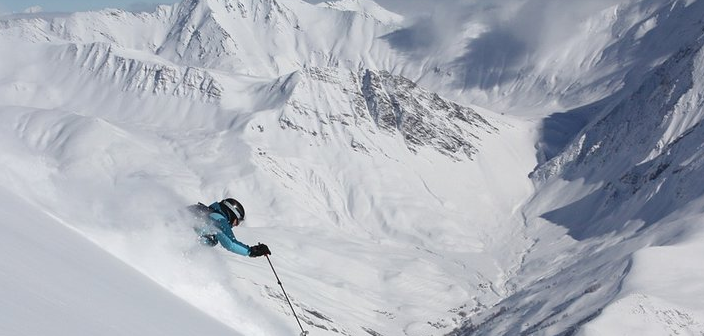 Liz sending in La Grave, France. Erin Smart photo.
Liz sending in La Grave, France. Erin Smart photo.
Aspen, Colorado native Liz Smart, 32, is one of eight American females to achieve full international certification through the American Mountain Guides Association and the International Federation of Mountain Guide Associations. Her husband, Miles, achieved full certification in his 20’s, making him the youngest American to do so. In 2004, he was the AMGA’s Guide of the Year. Together, they run Smart Mountain Guides, an international guiding operation based in Chamonix, France.
What's your guiding philosophy? How has it evolved so far?
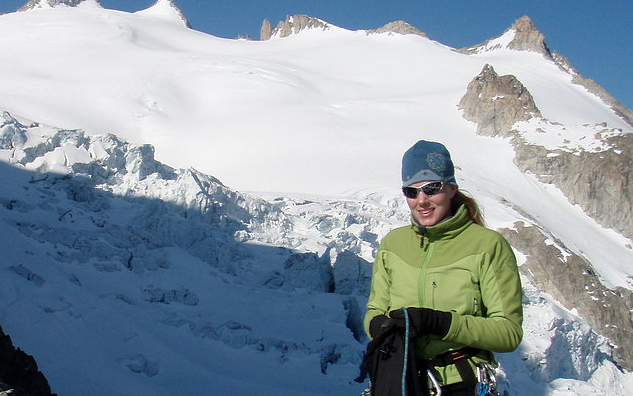 Liz on a ski touring trip in Chamonix. Smart Mountain Guides photo.
Liz on a ski touring trip in Chamonix. Smart Mountain Guides photo.
The reason I became a guide was to share the mountains with people. That’s a huge part of my philosophy. I want people to experience the mountains. I enjoy pulling people out of their comfort zone and showing them something new. It’s important to me that clients are having fun and a good experience doing something they’ve never done before. That’s not why all people guide. A lot of people become guides because they love to ski. You see them out with clients, and often they are frustrated. It’s not about skiing—it’s about taking people into the mountains, taking care of them and showing them a world that’s completely different to what they’re used to.
What challenges do you face as a female guide?
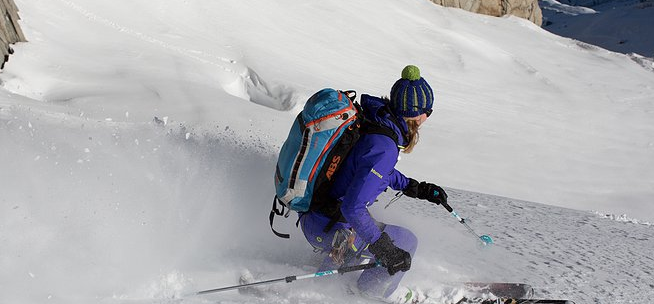 Liz Smart skiing powder from the Aiguille du Midi in Chamonix, France. Smart Mountain Guides photo.
Liz Smart skiing powder from the Aiguille du Midi in Chamonix, France. Smart Mountain Guides photo.
In Europe, I do get treated differently. Now it’s not as bad, but last winter, I’d get comments every other week. Someone would come up and look at my pin (that all mountain guides wear) and they’d either ask if I was a guide or where I found the pin. When that first started happening, I’d be really defensive. Now, I give really sarcastic answers. I tell them I found it in a cereal box.
The other day, this Eastern European guy was staring at my pin—which is already awkward because it’s on my chest—and he says “Are you a mountain guide?” I said "No, I just think it’s pretty jewelry." He didn’t know what to say. I told the clients I was with that if they are going to ask a dumb question, I’m going to give them a dumb answer. There are 20 female guides in France—that’s about 1% of the total. There’s even fewer in Italy. In the U.S., it’s almost 10%, but there are still only eight of us.
When and why did you decide you wanted to become a mountain guide?
.jpg.jpg) Liz skiing in the early season in Saas Fe. Smart Mountain Guides photo.
Liz skiing in the early season in Saas Fe. Smart Mountain Guides photo.
I knew I wanted to become a guide in high school. I was working with Aspen Expeditions and I was interested in becoming a ski guide, but the owner, Dick Jackson, said you’re either a mountain guide or not a mountain guide. I started working at Exum Mountain Guides (based in Jackson Hole) and there were some guides like Doug Coombs and Miles (who would become her husband) who were working year-round, and that’s when I realized I could make a full-time career out of it. I wanted to share the mountains with people and do adventures.
What was the first step?
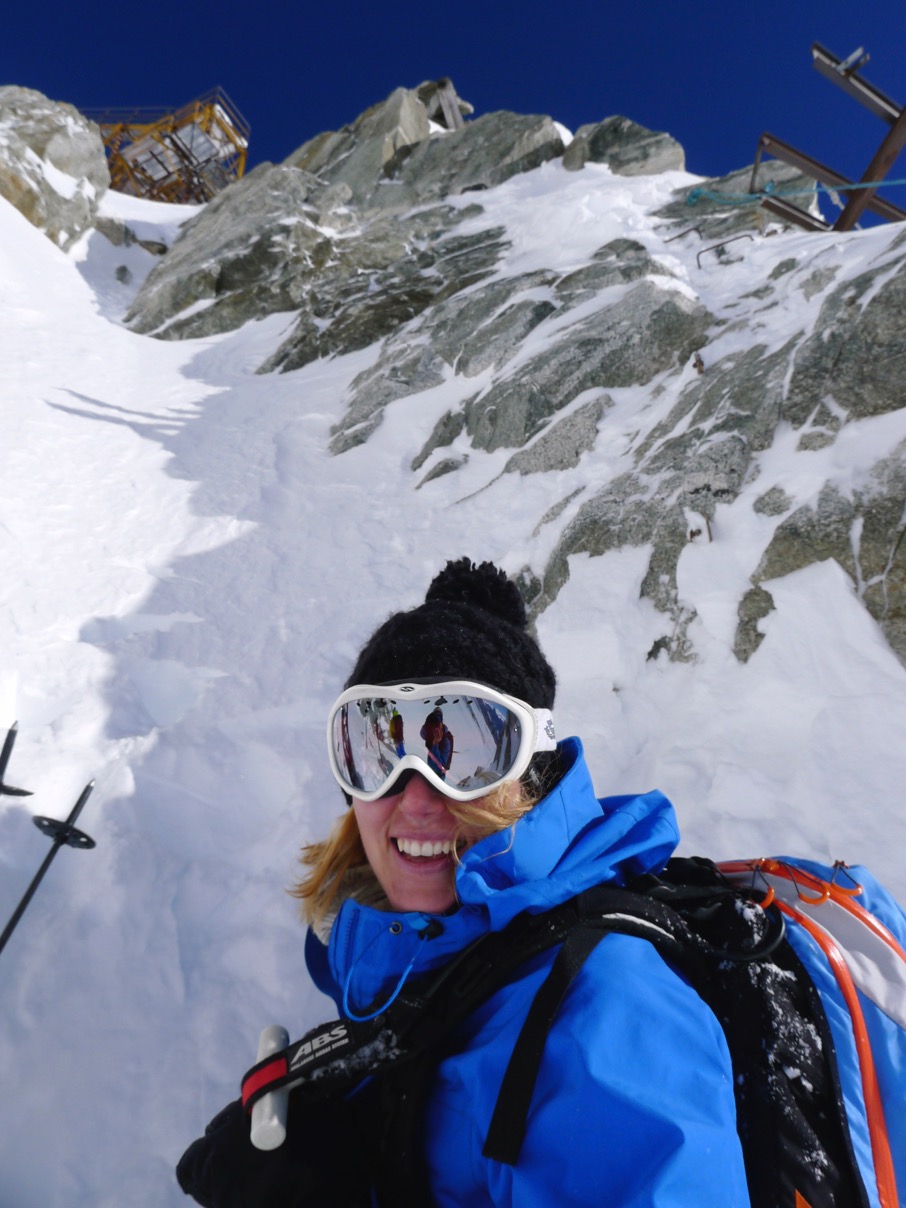 Liz Smart on the Toula Glacier, Italy. Smart Mountain Guides photo.
Liz Smart on the Toula Glacier, Italy. Smart Mountain Guides photo.
Working for Aspen Expeditions was a good stepping off point to see what the industry was about and what the job entailed. Then I worked at Exum, a bigger guide service and took my first course, the rock instructor course. I still wasn’t sure I was going to do the whole thing, but it was a good experience.
I went back to Europe and decided I was going to become a guide or finish college. I wasn’t going to just continue taking AMGA courses—it’s a big investment. I decided to go for it. And I eventually finished college, too. I started taking more courses and guiding. I went to college in the fall and went to the Alps in the winter and guided for Exum in the summer. I took AMGA courses whenever I could.
I do get treated differently. Someone would come up and look at my pin (that all mountain guides wear) and they’d either ask if I was a guide or where I found the pin. Now I just people sarcastic answers, and tell them I found it in a cereal box.
Around the time Doug died, I stopped for a couple years. Part of it was losing close friend to the mountains. It made me think a little more about whether I wanted to spend that much of my life in the mountains. The other reason is once you’re halfway through the guide program, you get into more exams and less courses. I needed to prepare more for the exams. It was good to have couple years to hone my skills.
What are the exams like?
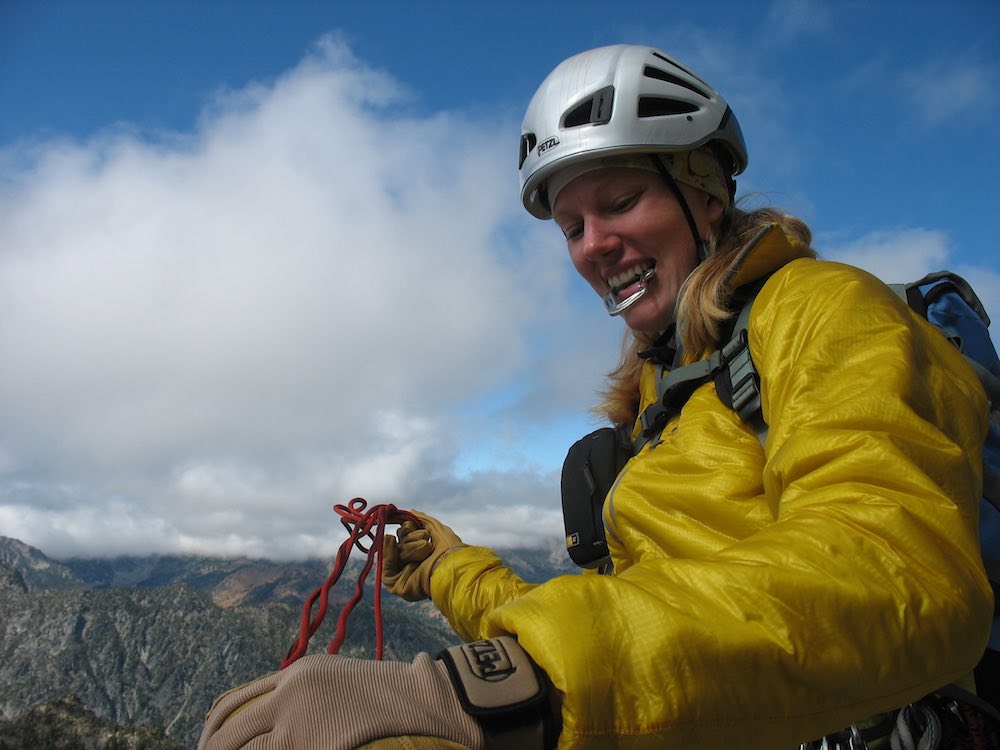 Liz training for the AMGA alpine guides exam. Erin Smart Photo.
Liz training for the AMGA alpine guides exam. Erin Smart Photo.
They are intense. There are some fun moments, but they can be really stressful. You go into the exam with other candidates, and everyone is quite nervous. You guide the examiners. They don’t exactly trick you, but they do like to see how you think on your feet. You’ll be prepared for a route and then they’ll change their mind. You have to be ready for everything. Plus, everything you do they watch super closely. Sometimes that makes you perform even more mistakes.
The rock exam is six days, the ski exam is 10 days and the alpine exam is 12 days. Now they have aspirant exams. You do an intro course, the second course and a three-day aspirant exam at the end of that. If you pass the aspirant exam, you take the final exam. Now, you have to do an ice course as well. If you go through all of those stages and pass the final exam for each, you’re fully qualified by both the AMGA (American Mountain Guides Association) as well as IFMGA (International Federation of Mountain Guide Associations).
What was the hardest part?
The alpine course and exam was probable the hardest. It’s not my specialty. I did it in the Cascades and it was bad weather. They kept canceling days and trying to figure out things to do with rock fall and tons of rain.
Where did you excel?
I think I did quite well with the rock exam. Originally, it was my hardest discipline, but I trained super hard for that one because I was quite nervous. I did the exam in Red Rocks, so I climbed a lot there beforehand so I’d be comfortable climbing sandstone and I’d be familiar with the routes. That’s what takes a lot of time and energy… it’s quite expensive for the courses, but you also spend a lot traveling to courses and taking a couple weeks off to climb before the exam.
Around the time Doug Coombs died, I stopped for a couple years. Part of it was losing close friend to the mountains. It made me think a little more about whether I wanted to spend that much of my life in the mountains.
A lot of people fail the exams. It’s quite easy to get into the program. You have to have a decent resume, but as long as there’s space, you just sign up. A lot of people take the intro and maybe even the advanced course, but then they don’t pass the aspirant exam. Or, they aren’t prepared when they take the final exam years later. The program in the U.S is very modular. A pretty high percentage of candidates fail. In France, it’s super difficult to get into the program. They entry exams are hard. So, if you pass the entry exam, unless you make a major mistake, you’re in.
What about continuing education?
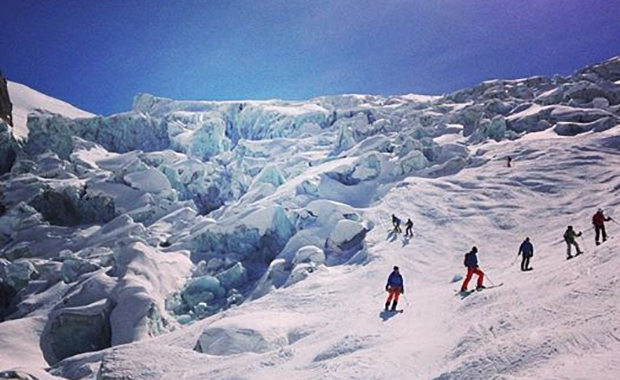 Navigating a glacier in the Alps. Photo via Liz Oakes Smart Facebook
Navigating a glacier in the Alps. Photo via Liz Oakes Smart Facebook
Now I’m a member of the French guides association. Every six years, we take a three-day course. A lot of it deals with new technology—ropes improve, there are different camming devices, etc. I did one course that was focused on client care. It was about safe travel techniques as far as keeping clients comfortable and safe and not over exerting them. In the U.S. that’s a huge part of our program the whole time. That hasn’t always been the case in Europe.
What’s it like guiding in Chamonix?
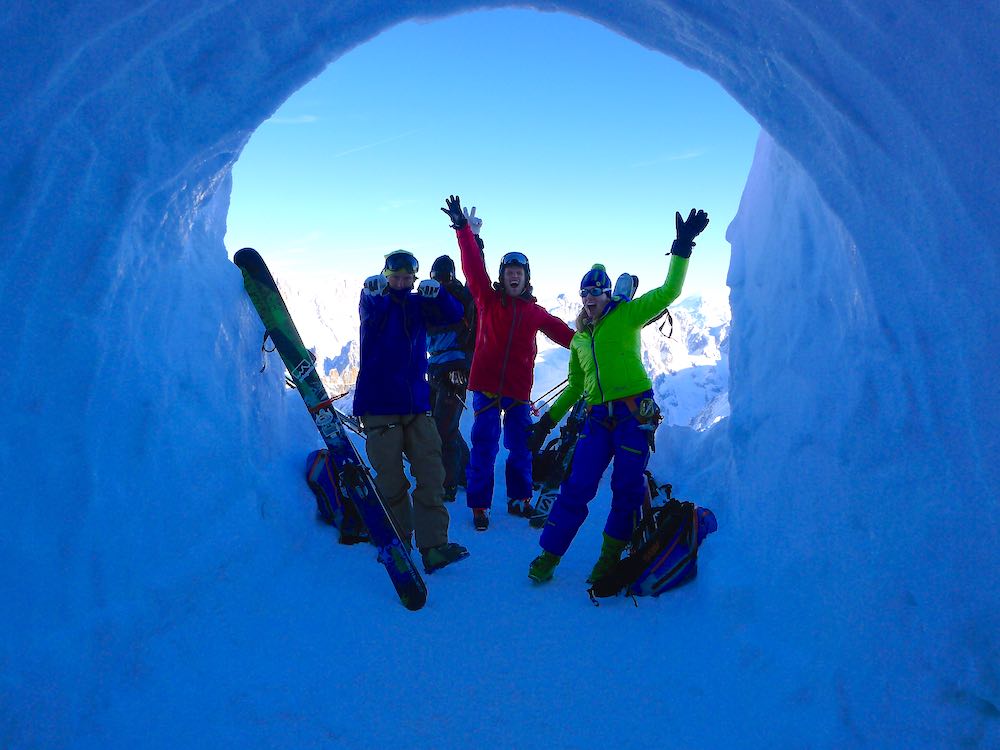 The Aiguille du Midi ice tunnel with the late Andreas Fransson, Liz Smart, and American Dave. Smart Mountain Guide Photo
The Aiguille du Midi ice tunnel with the late Andreas Fransson, Liz Smart, and American Dave. Smart Mountain Guide Photo
In Chamonix, there are a lot of guides. That’s good and bad. It’s great to have other guides around, but other guides can also make decisions you don’t like. Sometimes guides take too much risk. I’ll have a group and they’ll see another group going to ski something I’m not comfortable skiing right them. But when I explain the risks, most clients are ok with that. The other great thing about Cham, is that it’s really big. There are a lot of people but they are in specific places. If you tour, even for half an hour, you can be totally by yourself.
What’s it like running your own business?
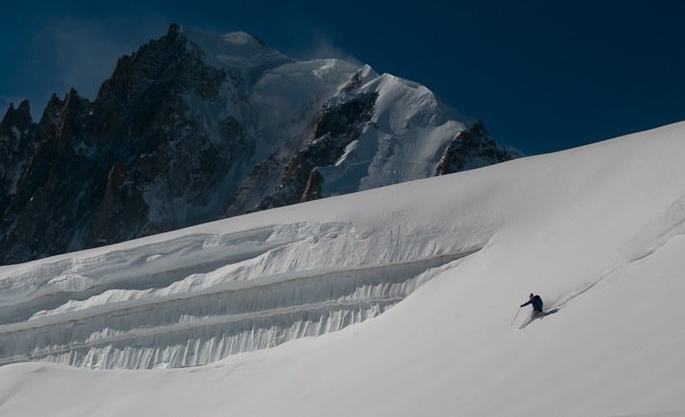 Liz's business partner & husband Miles ripping in Chamonix. Poa Andersson photo.
Liz's business partner & husband Miles ripping in Chamonix. Poa Andersson photo.
It’s great to run your own business here in Europe. There are challenges, but being able to work independently is great. If you are a fully certified guide in Europe, you can work for yourself. It’s a lot nicer to make your own decisions and you aren’t under anyone else’s thumb. The business is growing and we’re hiring other guides.
It’s also great to be guiding year round. We are looking forward to summer guiding. It’s nice to be changing seasons. If we were guiding skiing all year, we’d get really tired of it. When it comes to November, I’m always really excited to ski again. Climbing and mountaineering aren’t my favorite—I love cycling. We’re doing more and more bike guiding. We’ve found skiers tend to be cyclists. There are more skiers who ride than skiers who climb, so cycling is a really good complement to our business.
What do you love about guiding?
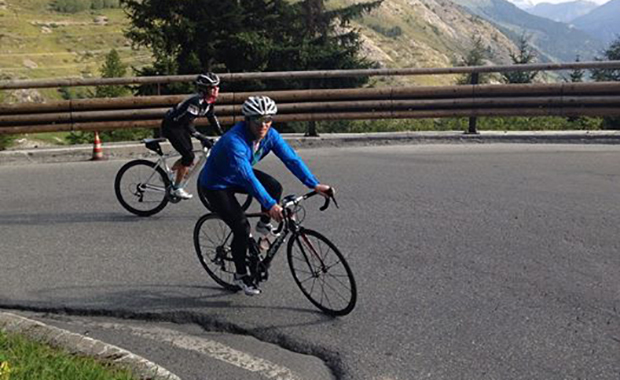 Biking is the summer passion for Liz and Miles, as well as a growing part of their summer business. Photo via Liz Oakes Smart Facebook
Biking is the summer passion for Liz and Miles, as well as a growing part of their summer business. Photo via Liz Oakes Smart Facebook
I love learning new things everyday. It’s always changing. It depends on clients, conditions… a lot of variables keep you on your toes. One of biggest things is always trying to make sure your clients are having a good time. You can’t have concrete plans. The weather changes—you have to be flexible.
Highlights of the last winter?
We had a lot of good weeks last year. One time in mid March, it was the worst snow—it hadn’t snowed in 2.5 weeks, and it was really firm. There was a mother and son from California, and they were really good skiers. I knew there wasn’t much to do, but they were happy just being in the Alps. They were blown away with size of the mountains. I took them touring, because it was good conditions for that. It was their first time touring. At the end of the week, this kid said it was the best week of skiing he’d ever had. He insisted they come back next year. To me, it was the worst week of skiing of the whole winter and the fact that I made it the best week of skiing for them… when I can give clients the best week of their season, that’s pretty satisfying.
What advice would you offer to an aspiring guide?
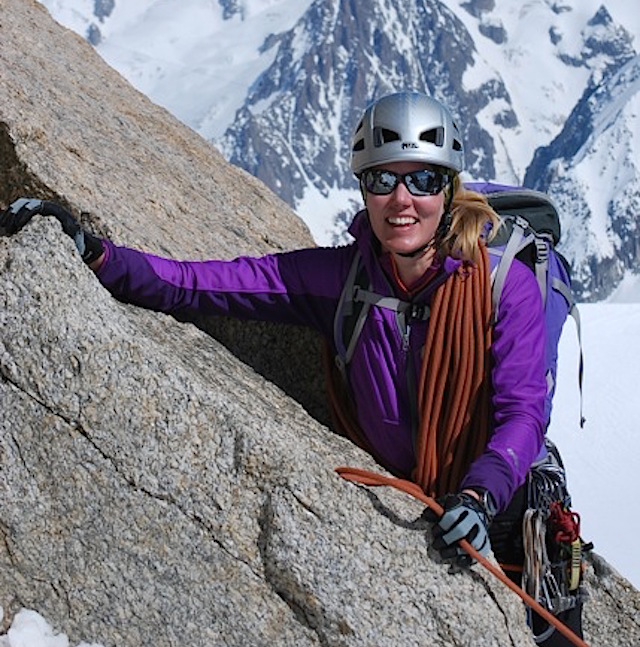 Liz Smart guiding climbing above the Vallee Blanche. Smart Mountain Guides photo.
Liz Smart guiding climbing above the Vallee Blanche. Smart Mountain Guides photo.
I would encourage them to find a company in the U.S. that they can guide for. Either a big company like Exum, or one of the many smaller companies. The nice thing in the U.S. is that you can guide before you go through the whole process. In Europe, you have to pass everything before you can guide. Go through the AMGA. They offer a whole bunch of courses. Even if you just wanted to ski tour on your own and not be a guide, the intro courses are great and really beneficial for your own experience in the mountains.



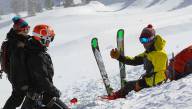
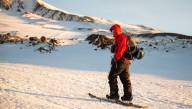
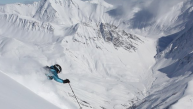
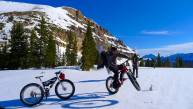
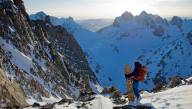
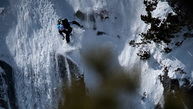
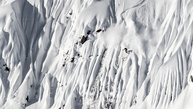
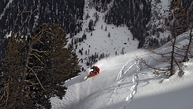
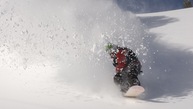
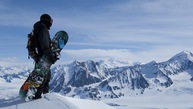
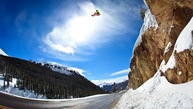
jameslara
January 18th, 2019
Please read my comments as linked.Thanks for sharing such nice post.
Game Lover - https://games.lol/arcade/
Leonx
October 17th, 2022
Here at Holland Custom Concrete, we provide West Michigan’s best concrete contractor services along with an unmatched combination of friendly service and professional quality. Visit us! Holland Custom Concrete
Joana
January 25th, 2023
You are awesome guys! Great interview. :)
Joana | Handicap ramp installation
jameslara
January 18th, 2019
Amazing information, Amazing post, keep informative posting. Thanks
Visit games.lol for Arcade Games
m3024b
January 24th, 2023
I read this post your post is so nice and very informative post thanks for sharing this post property manager
jameslara
January 18th, 2019
Great tips! I might actually be able to make this now! Thank you!
Visit games.lol for Puzzle Games
Leila
December 14th, 2020
I wish I can learn her bravery too. car dealerships in urbana ohio
Wanda Moore
April 3rd, 2021
Thanks a lot for sharing this with all folks you really understand what you are talking approximately! Bookmarked. yorkshire fabric arm chairs
Bobby Brooks
May 27th, 2021
Liz Oakes Smart is a mountain guide, ski mountaineer and climber. She grew up in Aspen, Colorado and has since traveled the world for climbing and skiing. landscape architect cincinnati
TreePro
July 14th, 2021
Thanks for sharing these interviews! I really like them as it gives me a glimpse on the different problems and tasks others faced in the real world. Thanks for sharing! Septic Replacement
SamStevens
July 16th, 2021
I absolutely adore this series! Thank you for sharing their stories and past. Great article TGR! Septic Pumping
TreePro
July 19th, 2021
This blue-collar series is one of the best I’ve seen in years from TGR. Thank you for doing this! Tree Removal Services
ChrisFlowers
July 20th, 2021
Being a ski guide is tough, I had experience on that first hand. Thanks for sharing! Metal Roofing Durham
Amber Brion
February 16th, 2022
I want to experience this kind of adventure but my health won’t allow it. So here I am handling my business Quality Control Services in Turkey
Leila
February 19th, 2022
Be careful. You guys are enjoying it!
Carlos Hank Gonzalez Banorte
Zandra
June 7th, 2022
Great article you shared here, interesting one. irrigation system mansfield texas
Zandra
June 29th, 2022
Glad to check this awesome article. More posts please. bathtub refinishing syracuse utah
m39445
July 20th, 2022
Thankful To You For Sharing Amazing And Unique Content On Your Web Blog. Please also check our website at https://www.pergolasgoldcoast.com/
Jenny223
August 9th, 2022
Great blog! Glad to visit this one. piano movers lancaster
johnlead423
August 30th, 2022
This great adventure. Thank you for sharing with us your information. Pool Fencing Albury
Jenny223
September 6th, 2022
This is great blog. thanks for sharing this with us. fence companies minneapolis
Donna Parker
September 12th, 2022
skiing is my dream Screen enclosures siesta key
Breana
September 23rd, 2022
Thank you for sharing this great article here. excavating companies seminole ok
Nicole32
January 15th, 2023
This inspires me to go to the mountains and I will also encourage my co-workers at Dumpster Rental Cedar City, Utah to do the same.